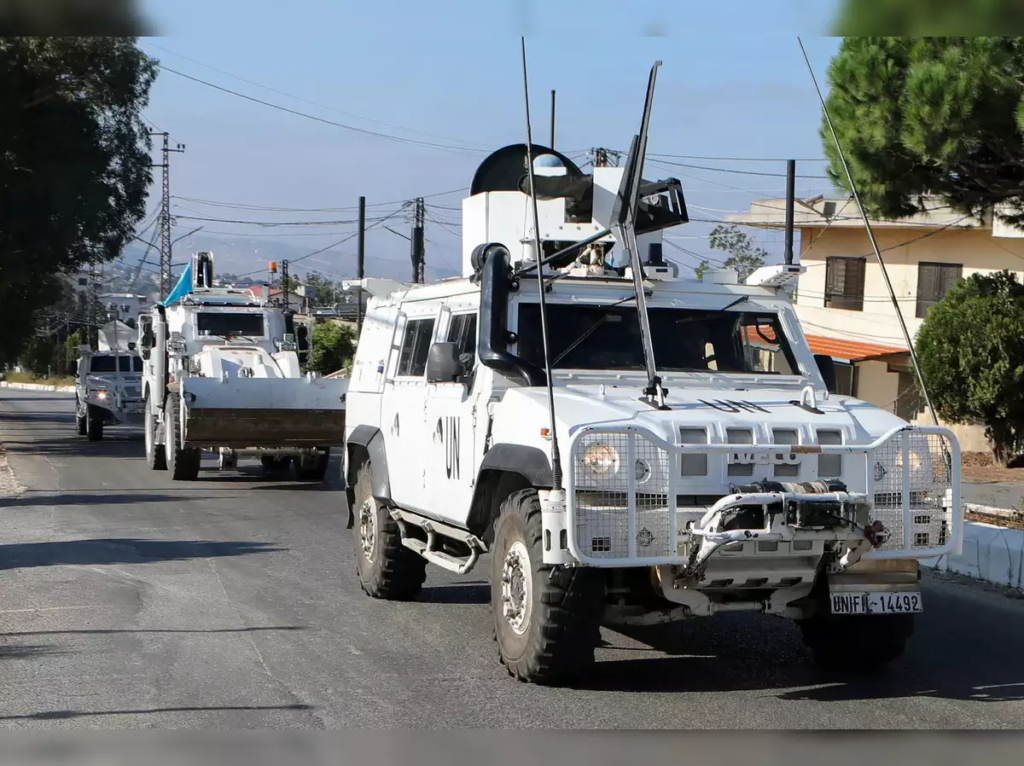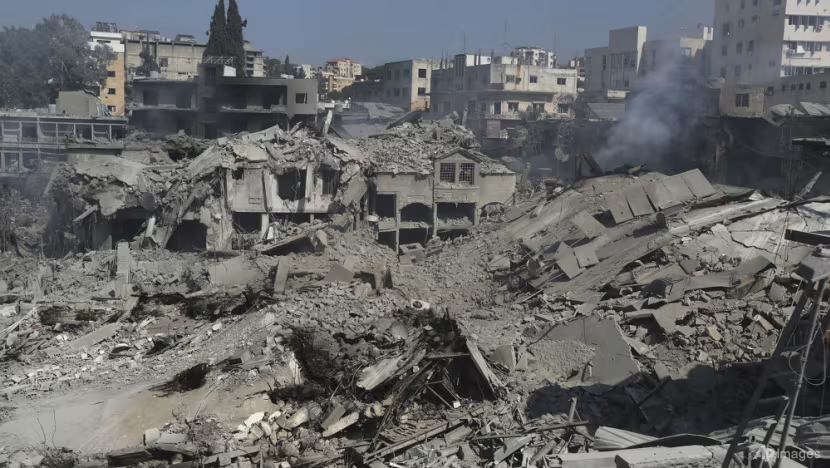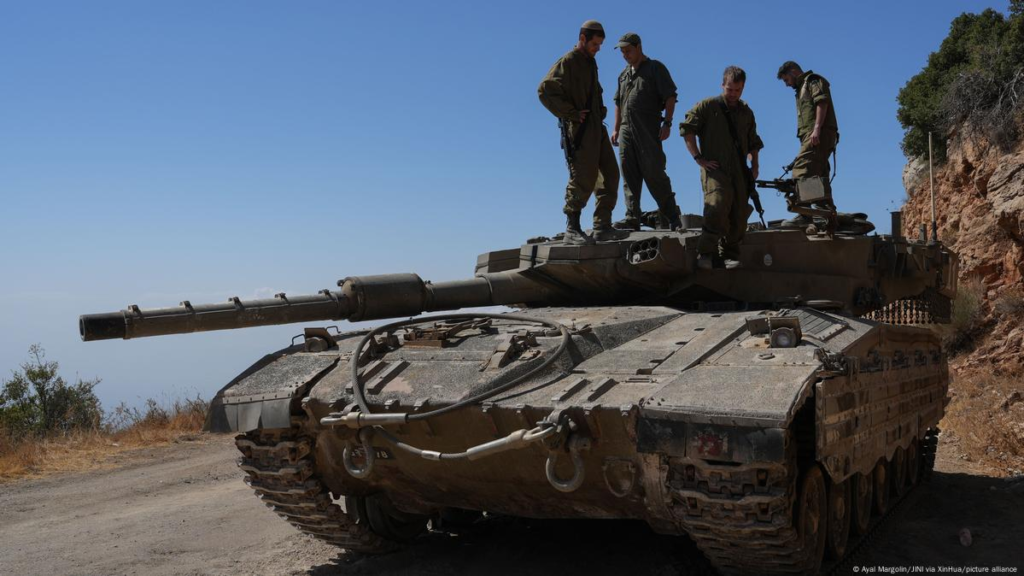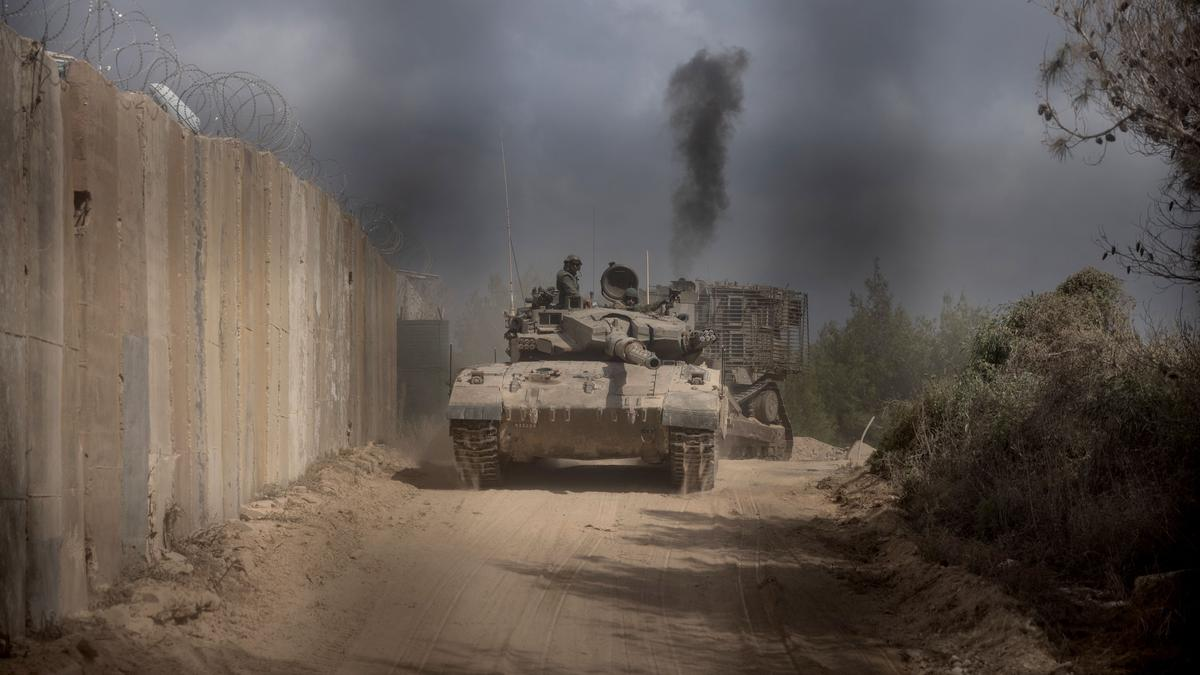In a dramatic escalation of tensions between Israel and Hezbollah in southern Lebanon, the United Nations has reported that Israeli Merkava tanks forcibly entered a peacekeeping base operated by the United Nations Interim Force in Lebanon (UNIFIL).
This incident, which occurred in the early hours of Sunday, October 14th, adds to the growing accusations of Israeli violations of international law and puts further strain on the already fragile relations between Israel and the international community.
While Israel has given a different account of the event, the incident underscores the volatility of the region and the precarious position of UN peacekeepers stationed in southern Lebanon.
The Incident: Israeli Tanks Enter UNIFIL Base
According to a statement issued by UNIFIL, two Israeli Merkava tanks breached the gates of a UN peacekeeping base in southern Lebanon before dawn. The tanks allegedly destroyed the main gate and forced their way into the base.
After entering, Israeli forces reportedly withdrew, but not before the situation worsened further when shells exploded just 100 meters away from the base, causing smoke to spread across the area. The smoke reportedly sickened several peacekeepers, even though they were wearing protective gas masks.
Read : Israeli Strike Silenced a Beating Heart of Lebanon as it Ruins Nabatiyeh Market
UNIFIL confirmed that 15 peacekeepers required medical treatment following the incident, marking yet another example of the dangers faced by international forces in conflict zones.
Read : Israeli Foreign Minister Threatens Iran, Saying It ‘Deserves to Be Destroyed’
This episode follows a string of attacks and violations that have drawn international condemnation, even from Israel’s allies. UNIFIL labeled the incident a “grave violation of international humanitarian law” and cited UN Resolution 1701, which was established in 2006 to monitor the cessation of hostilities between Israel and Hezbollah and to promote peace and stability in southern Lebanon.
Resolution 1701 mandates that southern Lebanon remain free of weapons or military forces other than those of the Lebanese state, a mission UNIFIL has been tasked with upholding for nearly two decades.
Conflicting Narratives: Israel’s Response
Israel has presented a different version of the events, offering an explanation that diverges sharply from the UN’s account. According to Israeli military officials, Hezbollah militants launched anti-tank missiles at Israeli soldiers in the vicinity of the UNIFIL base.
The attack reportedly left 25 Israeli troops wounded. In response, Israeli forces scrambled to evacuate the injured soldiers, and a tank that was assisting in the evacuation inadvertently backed into the UNIFIL post while under heavy fire.
Nadav Shoshani, Israel’s international military spokesperson, clarified that the tank’s actions were not a deliberate attempt to storm or enter the base but were instead a consequence of the chaotic evacuation efforts.

Shoshani emphasized that the tank was “under heavy fire” and was trying to “get out of harm’s way,” not attempting to breach the UNIFIL base. He also stressed that the use of smoke during the evacuation was meant to provide cover for Israeli forces and posed no threat to the peacekeepers. This explanation stands in contrast to UNIFIL’s statement, which described the incident as a breach of international law.
The Israeli military has faced criticism in recent weeks for a series of strikes near UN peacekeeping posts in southern Lebanon, which have resulted in injuries to five peacekeepers. The United Nations has expressed concern over these incidents, and many of Israel’s allies have echoed these concerns.
Any deliberate targeting of peacekeepers is considered a violation of international law, raising further questions about Israel’s conduct in the ongoing conflict with Hezbollah.
The Broader Context: Escalating Conflict and International Repercussions
The situation in southern Lebanon has grown increasingly tense over the past year, with Israel and Hezbollah engaged in a violent conflict that has spilled over into areas monitored by UNIFIL. Hostilities between the two sides resumed in October 2023, when Hezbollah began firing rockets into northern Israel in support of Hamas during the Gaza war.
Since then, the conflict has escalated, with both sides engaging in increasingly aggressive military actions. Israeli strikes have targeted Hezbollah strongholds, while Hezbollah has launched cross-border attacks, contributing to a volatile security situation along the Israel-Lebanon border.
UNIFIL, a peacekeeping force with troops from 50 countries, has found itself caught in the crossfire. Established in 1978 to maintain stability in southern Lebanon, UNIFIL’s role has expanded over the years, particularly after the 2006 war between Israel and Hezbollah.

UN Resolution 1701, which brought an end to that conflict, tasked UNIFIL with monitoring the cessation of hostilities and ensuring that the border area remains free of non-state military forces. However, critics of the mission, including Israeli officials, argue that UNIFIL has been unable to prevent Hezbollah from amassing weapons and operating near the border.
The current hostilities have resulted in significant human suffering. Lebanon has reported more than 2,100 deaths and over 10,000 injuries in the past year of fighting, with the majority of casualties occurring in recent weeks. The violence has also displaced 1.2 million people in Lebanon, further straining the country’s already fragile economy and social fabric.
The Lebanese government, for its part, has accused Israel of disproportionate use of force and has condemned the targeting of civilians in the conflict. Israel, on the other hand, claims that it has made significant strides in weakening Hezbollah by eliminating much of its senior leadership.
The presence of UNIFIL complicates the situation. As an international peacekeeping force, its mandate is to maintain neutrality and monitor compliance with Resolution 1701. However, Israel has expressed frustration with UNIFIL’s inability to fully disarm Hezbollah or prevent the group from using civilian areas as cover for its military operations.
Israeli Prime Minister Benjamin Netanyahu has repeatedly called for the withdrawal of UN peacekeepers from areas controlled by Hezbollah, accusing the group of using them as “human shields.” In a statement directed at UN Secretary-General António Guterres, Netanyahu urged the UN to withdraw UNIFIL from combat zones and Hezbollah strongholds, a request that has been consistently denied.
The incident at the UNIFIL base has drawn widespread international criticism. Italian Prime Minister Giorgia Meloni, typically one of Israel’s staunchest allies in Europe, condemned the attack as “unacceptable” during a phone call with Netanyahu. Italy has a significant contingent in the UNIFIL force, with over 1,000 troops stationed in southern Lebanon.

France and Spain, which also have large numbers of soldiers in the peacekeeping mission, have similarly denounced the recent Israeli actions near peacekeeper positions. Despite these criticisms, Netanyahu maintained that Israel regrets any harm caused to UNIFIL personnel but reiterated the country’s commitment to “win the war” against Hezbollah.
The United States has also expressed concern over the situation. In a phone call with Israeli Defense Minister Yoav Gallant, U.S. Defense Secretary Lloyd Austin urged Israel to take all necessary precautions to ensure the safety of UN peacekeepers and the Lebanese military, which is not a direct party to the conflict with Hezbollah.
Austin’s remarks reflect a broader international consensus that Israel must act within the bounds of international law, particularly when it comes to safeguarding the safety of neutral parties such as UNIFIL.
As the conflict between Israel and Hezbollah intensifies, the potential for further clashes involving UN peacekeepers remains high. UNIFIL’s presence in southern Lebanon is meant to serve as a buffer between the warring factions, but the increasingly complex and violent nature of the conflict has made it difficult for peacekeepers to avoid becoming entangled in the fighting. With both sides unwilling to back down, the future of UNIFIL and its mission in southern Lebanon remains uncertain.
let’s enjoy few years on earth with peace and happiness….✍🏼🙏

